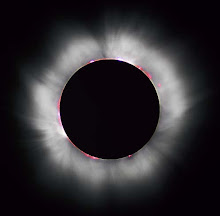Genesis 49:10 is universally considered a messianic
passage. Let's look at that verse in its entirety:
"The
scepter shall not depart from Judah, nor a lawgiver from between his feet,
until Shiloh come; and unto him shall the gathering of the people be."
This means that there would be an uninterrupted line of
rulers from the tribe of Judah all the way up to the advent of the Messiah. Jewish
dynasties ended when Herod the Great who was a non-Jew ascended to the throne
of Judea. As we all know, Jesus arrived at that time. So, according to the
prophecy - Jesus, the Messiah, arrived exactly on time.
Question: Is it possible that someone else could come and
fulfill the prophecy in Genesis 49:10?
Answer: After AD 138 not only was there no one from the
tribe of Judah on the throne, there were no Jews from any tribe on the throne
and in fact there weren't any Jews of any sort in Judea. All the Jews who
survived the Bar Kochba revolt were forced to leave Judea and go into exile.
The Jews that followed the false messiah Bar Kochba were sold into slavery in
Egypt. This means that 1) the Messiah should have arrived when a non-Jew (Herod
the Great) ascended the throne and 2) absolutely without any equivocation - the
messiah according to Genesis 49:10 had to arrive prior to AD 138.
It is completely and absolutely positive that all Jewish
dynasties of any type ceased by AD 138. It is not possible for someone born now
or in the future to fulfill the messianic prophecy in Genesis 49:10 - since the
time period for that prophecy undeniably expired in AD 138. This leaves the
inescapable conclusion based on the messianic prophecy in Genesis 49:10 – Jesus
is the only person who can be the Messiah!
J. Clontz - Finding
Jesus in the Old Testament: Proving that God Exists





No comments:
Post a Comment